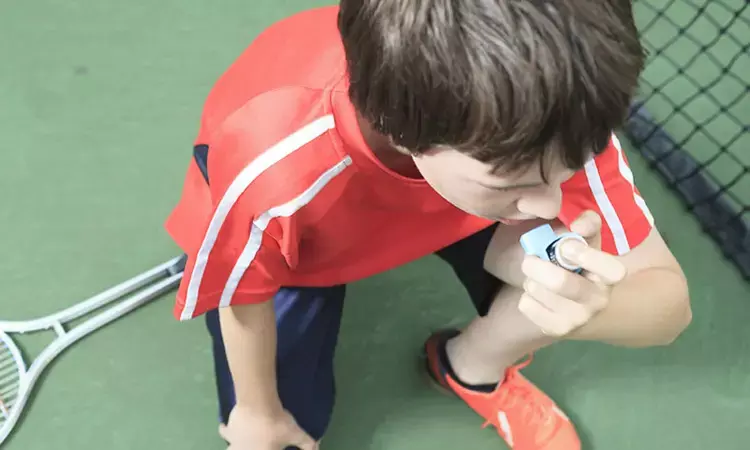- Home
- Medical news & Guidelines
- Anesthesiology
- Cardiology and CTVS
- Critical Care
- Dentistry
- Dermatology
- Diabetes and Endocrinology
- ENT
- Gastroenterology
- Medicine
- Nephrology
- Neurology
- Obstretics-Gynaecology
- Oncology
- Ophthalmology
- Orthopaedics
- Pediatrics-Neonatology
- Psychiatry
- Pulmonology
- Radiology
- Surgery
- Urology
- Laboratory Medicine
- Diet
- Nursing
- Paramedical
- Physiotherapy
- Health news
- Fact Check
- Bone Health Fact Check
- Brain Health Fact Check
- Cancer Related Fact Check
- Child Care Fact Check
- Dental and oral health fact check
- Diabetes and metabolic health fact check
- Diet and Nutrition Fact Check
- Eye and ENT Care Fact Check
- Fitness fact check
- Gut health fact check
- Heart health fact check
- Kidney health fact check
- Medical education fact check
- Men's health fact check
- Respiratory fact check
- Skin and hair care fact check
- Vaccine and Immunization fact check
- Women's health fact check
- AYUSH
- State News
- Andaman and Nicobar Islands
- Andhra Pradesh
- Arunachal Pradesh
- Assam
- Bihar
- Chandigarh
- Chattisgarh
- Dadra and Nagar Haveli
- Daman and Diu
- Delhi
- Goa
- Gujarat
- Haryana
- Himachal Pradesh
- Jammu & Kashmir
- Jharkhand
- Karnataka
- Kerala
- Ladakh
- Lakshadweep
- Madhya Pradesh
- Maharashtra
- Manipur
- Meghalaya
- Mizoram
- Nagaland
- Odisha
- Puducherry
- Punjab
- Rajasthan
- Sikkim
- Tamil Nadu
- Telangana
- Tripura
- Uttar Pradesh
- Uttrakhand
- West Bengal
- Medical Education
- Industry
Oscillometry effective treatment option for acute asthma in children, finds study

USA: Results from a small feasibility study show oscillometry to be safe and responsive in children presenting to the emergency department (ED) with acute asthma exacerbations. The results are published in the journal Annals of Allergy, Asthma & Immunology.
Emergency department treatment is variable, leading to prolonged ED length of stay, inefficient use of asthma therapies, and unnecessary hospitalizations.
Nidhya Navanandan, University of Colorado School of Medicine, Aurora, Colorado, and associates collected vital signs, Pulmonary Asthma Score, and respiratory impedance by oscillometry in children aged 4 to 18 years who were presented to an urban tertiary care children's hospital emergency department for an acute asthma exacerbation.
Oscillometry was performed 3 times: prior to receiving treatment, after completion of initial therapies, and 2 hours post initial therapy. 20 children were included in the study; the average age was 9.3 years, 50% were boys, and 30% were identified as African American.
Read Also: Indoor air filtration can improve breathing in asthma children: JAMA
Key findings of the study include:
- There was an average of 31.0 minutes from time of emergency department triage to initial oscillometry assessment, 50.5 between measurements 1 and 2, and 118.3 minutes between measurements 2 and 3.
- A total of 75% of the participants were able to successfully complete the initial oscillometry assessment.
- In the remaining 5 patients, 2 were unable to perform because of the severity of exacerbations, and 3 did not have acceptable measurements.
"Oscillometry may be a valuable bedside measure of lung function to direct [emergency department] treatment and disposition decisions and reduce the clinical morbidity associated with asthma," concluded the authors.
Read Also: Breastfeeding in early infancy decreases risk of allergies and asthma
The study, "Oscillometry for acute asthma in the pediatric emergency department: A feasibility study," is published in the journal Annals of Allergy, Asthma & Immunology.
DOI: https://doi.org/10.1016/j.anai.2020.07.002
Dr Kamal Kant Kohli-MBBS, DTCD- a chest specialist with more than 30 years of practice and a flair for writing clinical articles, Dr Kamal Kant Kohli joined Medical Dialogues as a Chief Editor of Medical News. Besides writing articles, as an editor, he proofreads and verifies all the medical content published on Medical Dialogues including those coming from journals, studies,medical conferences,guidelines etc. Email: drkohli@medicaldialogues.in. Contact no. 011-43720751


